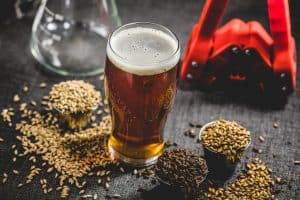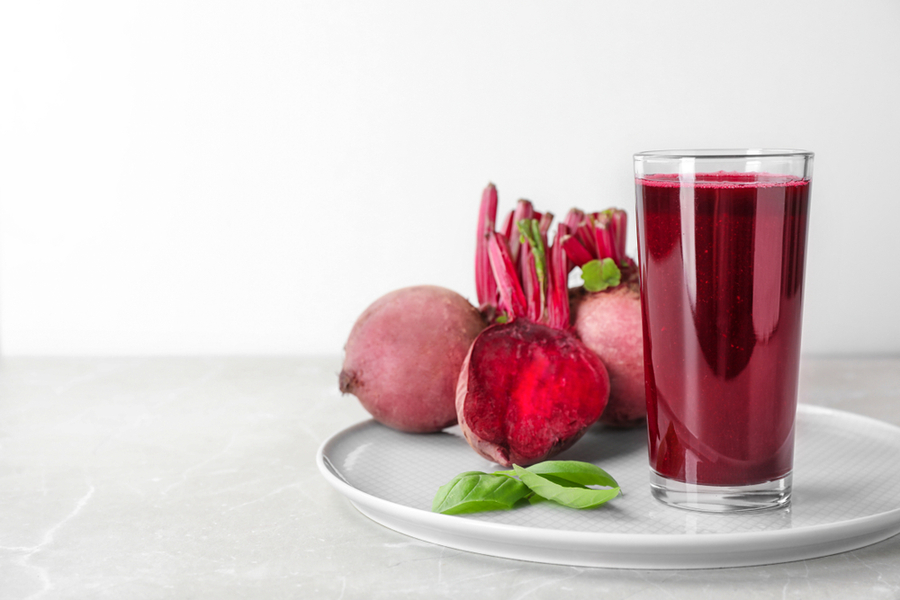
Beet juice is made from beetroot. While many people do not like it plain in salads, this vegetable is packed with nutrients. Though it may not be a superfood, it would not be wrong to call it one.
Unlike many vegetables or fruits that impact only one part, beet juice benefits the whole human body.
Setting aside the benefits and nutritional facts, the fame it has gained over the past few years has aroused the question, what is the best time to drink beet juice?
The best time to drink beet juice is in the morning or two to three hours before sleeping, and to get the most benefits out of it, having it on an empty stomach maximizes its effect. Also, it is the best drink to take a few hours before exercising.
Here we will dive into the nutritional facts of beet juice, a long list of its health benefits, and who should not drink it. Let us set forth.
Nutritional Facts of Beet Juice
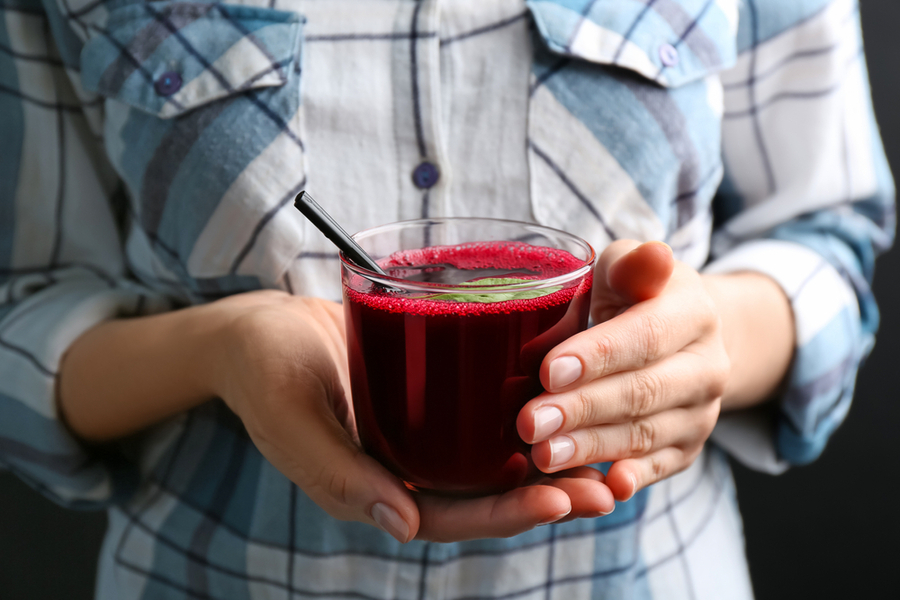
According to the U.S. Department of Agriculture, a cup of beet juice contains 3 grams of protein, 700.8 milligrams of potassium, 24 grams of carbs, 22 grams of sugar, and 0 grams of fat, and provides total energy of 110.4 calories.
Besides this, beet juice contains Iron, sodium, manganese, magnesium, selenium, zinc, copper, vitamins A and B-6, nitrates, antioxidants, and folates.
Beetroot has a sweet taste with an earthly hint, which may not be to your liking like many. So, try making its juice with lemon and citric fruits. You can also use vegetables to mask the beetroot taste, but fruits work like a charm.
Health Benefits of Beet Juice
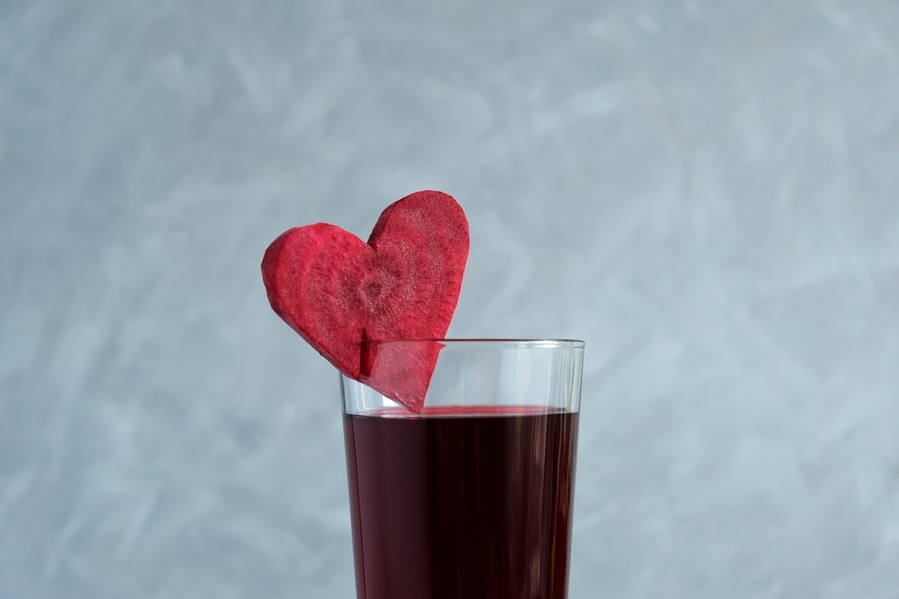
Beet juice is good for your skin, hair, liver, and heart, but it also helps to maintain blood pressure, improves stamina, performs a detoxifying function, and many more. The following are the benefits of beet juice.
1. Blood Pressure (BP) Maintenance
Welcoming news for people with blood pressure issues, beet juice is a natural medicine for you. High BP is a condition that can cause many health complications and even death in the worst cases.
Beetroot is high in nitrates, and according to research, these can help to regulate or, more accurately, lower BP by dilating/relaxing blood vessels, ensuring the smooth flow of blood.
So, drinking a cup (8 oz.) of beet juice (daily) can help you naturally deal with this problem.
2. Benefits For Skin
Beet juice has the most promising effect on the skin and is a tonic for various skin issues. These are some of the skin benefits of drinking beet juice:
- Acne and Pimple Removal: Beet juice is a natural remedy for skin issues like acne, pimples, or oily skin. It takes time to take effect, so consumption regularly will effectively make the problem subside.
- Radiating and Smooth Skin: Beetroot contains vitamin C and flushes out toxic substances from the blood, making the skin glow and reducing skin marks. The carotenoids in it also make skin smooth by ensuring proper moisture.
- Anti-Aging and Dark Circles: Beet juice is your best option to avoid wrinkly and saggy skin. It contains many compounds that promote the elastic nature of the skin, making you have timeless skin. Also, applying beetroot juice to dark circles can make them disappear.
3. Enhances Stamina/Athletic Abilities
Perhaps the most common reason trainers recommend drinking beet juice is that it helps to increase stamina if taken before a few hours of exercising. It is due to the increased oxygen output throughout the body, energizing your organs and muscles.
The best time to drink it is in the morning to get energy for your morning jog. Regular intake can boost your overall exercise/athletic performance. It is also a prominent after-workout drink, as it enhances the ability of muscles to recover quickly.
4. Detoxification and Liver Health
The function of the liver is cleansing blood and ensuring that chemicals in the blood do not cause harm to the body. Over time excess alcohol consumption, toxic substances, or a poor diet can lead to degradation in liver health.
Beetroot has a detoxifying effect and does not only help cleanse the blood but helps regulate liver health. Beet juice prevents any build-up in the liver and enhances the activity of liver cells. These benefits are due to the presence of antioxidants; learn more about the health benefits of antioxidants here.
5. Other Health Benefits
Besides these, there is still an abundance of beet juice benefits, some of which are as follows:
- Rich Source of Minerals: Beet juice contains a long list of minerals, for example, zinc (for healthy immune functionality), potassium (maintains proper functionality of muscle and nerves), iron (used by hemoglobin to carry blood oxygen), copper, magnesium, and so on.
- Weight loss: Beet juice contains no fat, so it can be used in place of your coffee in the morning to satiate your craving for coffee or energy drinks to provide you the energy to deal with a day of hectic work without extra calories or sugars.
- Prevents Hair Loss: Potassium, iron, and other nutrients in beet juice are great for hair revitalization and can stop hair fall and tackle dandruff problems. Also, Betacyanin in beetroot can impart a red color to your hair, preventing them from turning gray.
Who Should Avoid Beet Juice?
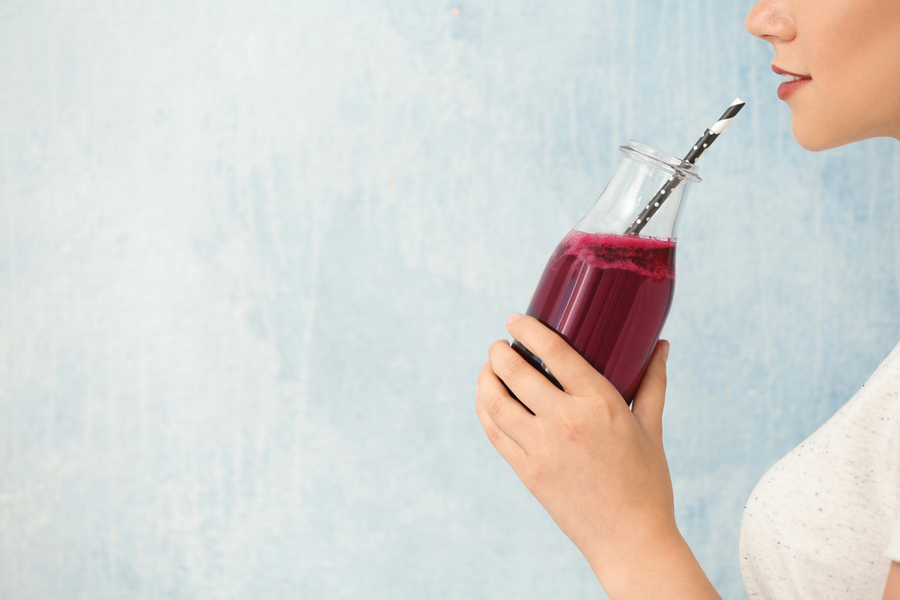
There are two types of people who should avoid drinking beet juice.
People With Low Blood Pressure: People with already low blood pressure are recommended to avoid drinking it, as it lowers blood pressure more and can cause health risks.
People With Kidney Stones Issue: Oxalates are the main reason behind the formation of kidney stones, so people having such issues are advised to avoid this juice.
Beet juice adds a red hue to your urine, so it may come as a shock if you are drinking beet juice for the first time. So, remember that before running off to your doctor.
Summary
Drinking beet juice on an empty stomach is the best way to ingest it. Otherwise, the best time to consume it is in the morning as an alternative to coffee or other sugary drinks.
You can also take it at night, but be sure to take it at least three hours before sleeping, or it may cause weight gain.

